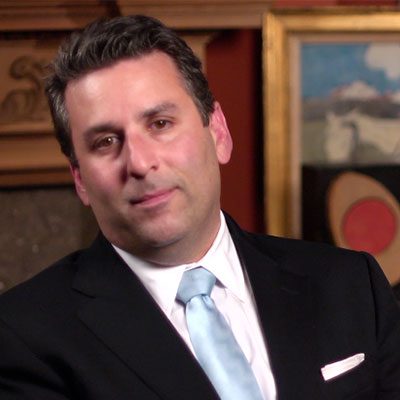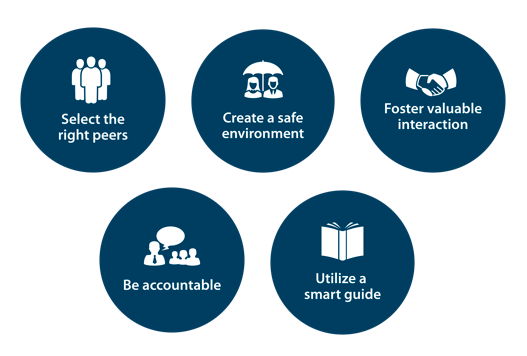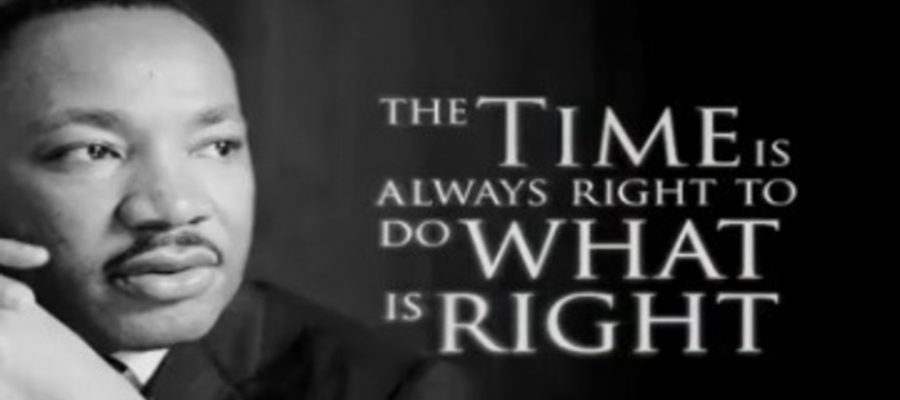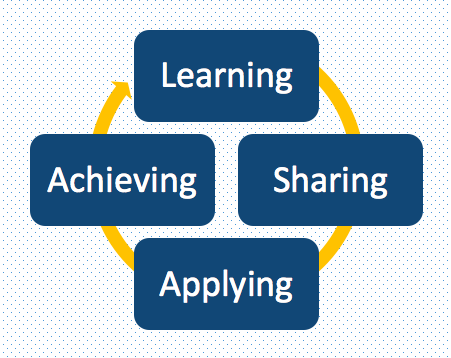This is Part III of a (somewhat accidental) series involving why peer groups work, how they work (the conditions necessary for their success), and at least one perspective about how they could be led – that would be this post!
In Part I, I offered an illustration of a reinforcing loop involving a process of learning, sharing, applying and achieving to show why peer groups work so well, not only when it comes to embedding what we learn, but also with giving us the courage to implement new strategies and actually benefit from them. Part II simply suggested that this process doesn’t happen unless you have the right people in the room, a safe/confidential environment, a process for interacting that brings value, a culture of peer-to-peer accountability, and good servant leadership.
In the book, The Power of Peers: How the Company You Keep Drives Leadership, Growth & Success, we don’t take a position on whether a group should be led by a professional facilitator, a member on a rotating basis, or anything that may fall in between. What we do suggest is that no matter who is in charge, the responsibilities are the same: to be sure the conditions or factors outlined in Part II are present, and that the group leader should maximize all the assets in the room to drive the reinforcing loop we described. The high performing groups we studied have this in common.
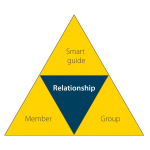 If you think of it visually, we didn’t see an all powerful leader who stands apart from the group, engaging in dyads with the members, each looking to the leader for guidance and support. Instead, we pictured a more participatory environment with the leader as a part of the group, using a triad model we picked up from a terrific book called Tribal Leadership and through conversations with one of its coauthors, Dave Logan.
If you think of it visually, we didn’t see an all powerful leader who stands apart from the group, engaging in dyads with the members, each looking to the leader for guidance and support. Instead, we pictured a more participatory environment with the leader as a part of the group, using a triad model we picked up from a terrific book called Tribal Leadership and through conversations with one of its coauthors, Dave Logan.
With each entity accepting their role as “having the back” of the relationship and being accountable to one another, it allows everyone to extract the most value possible from the experience and ultimately serve everyone’s purpose for being there.
This “series” may have been a happy accident, but I hope it was an informative one. Please share your thoughts and experiences on any aspect of this in the comments section. Thank you!


